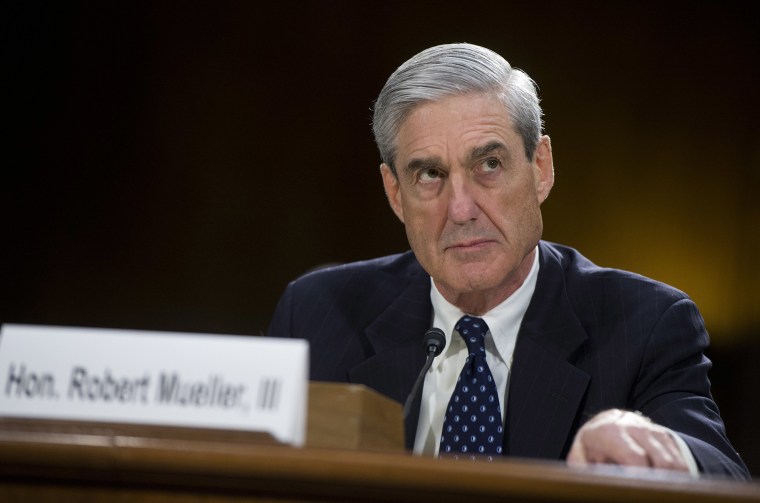Federal prosecutors said on Wednesday that special counsel Robert Mueller’s office was subject to a Russian disinformation campaign that intended to discredit his investigation into the Kremlin’s meddling in the 2016 election.
The Kremlin-backed disinformation campaign that targeted Mueller’s office failed to gain any traction, however, as the contents of a fake trove of the special counsel’s files were immediately dismissed as largely fabricated by the reporter and researcher who received them.
The fake documents were sent to ThinkProgress reporter Casey Michel and independent disinformation researcher Josh Russell in November in direct messages from a Twitter account called @HackingRedstone. The messages’ sender claimed to be “anonymous hackers.”
“We are like hundreds of others, but we are the one and only who got the Special Counsel Mueller database,” @HackingRedstone claimed. “You might wonder why we want to share all this information with you. You are the one who can tell people the truth!”
Both Michel and Russell were immediately skeptical of the documents.
“The DM I got was ridiculous, both in terms of its syntax as well as the types of phrases it used,” Michel told NBC News. “It reminded me of the types of language we saw on some of the fake Russian Facebook pages, like when the Russian trolls claimed they were Texas secessionists who were ‘in love with Texas shape!’”
Mueller’s team confirmed some of the documents were legitimate and obtained through the trial’s discovery process. Other documents included in the fake leak, which included screenshots of websites and memes that were not created by the Internet Research Agency, were not collected by Mueller’s team.
The Internet Research Agency is a St. Petersburg-based firm run by a close ally of Russian President Vladimir Putin whose key executives have been indicted by Mueller on charges of defrauding the United States.
The fake documents were apparently included in the trove to falsely demonstrate that Mueller’s team had incorrectly characterized some American websites as Russian disinformation operations, Michel said.
“Some of the files they sent along did appear legitimate and were some of the things we'd already seen on those fake Twitter or Facebook pages before,” Michel said. “Some of the things were pretty clearly not from the IRA, or at least weren't anything that any other reporters or analysts had ever claimed to be Russian.”
The documents included memes from both the troll farm and American hyperpartisan sites and Facebook pages, like Occupy Democrats, as part of its effort to mix up real and fake IRA efforts.
Correctly believing the documents to be part of a more elaborate disinformation plot, Michel did not report on the trove at the time.
Russell told NBC News he also believed the documents were part of a larger disinformation campaign that aimed to affect the 2016 election.
“I was super excited to click the link they posted then it was just a big letdown,” Russell said.
In the same week, some reporters received a similar direct message on Twitter from an account called @IRA_USA1, which claimed Russia was “controlling [America’s] election” and linked to a website that posted a large list of accounts tied back to the Kremlin’s “troll farm.”
“It’s some galaxy brain stuff they wanted us to believe," Russell said. "They had this grand plan and it all went to hell when me and Casey just lol'd."
The special counsel’s office indicted 13 Russian nationals working for the Kremlin-backed Internet Research Agency last February.
“The reason it fell apart on them was that we agreed to sit on the info, both of us just investigating and not saying anything about it until after we got all the information we needed,” said Russell. “I think they expected my amateur a-- to immediately start tweeting about it.”
